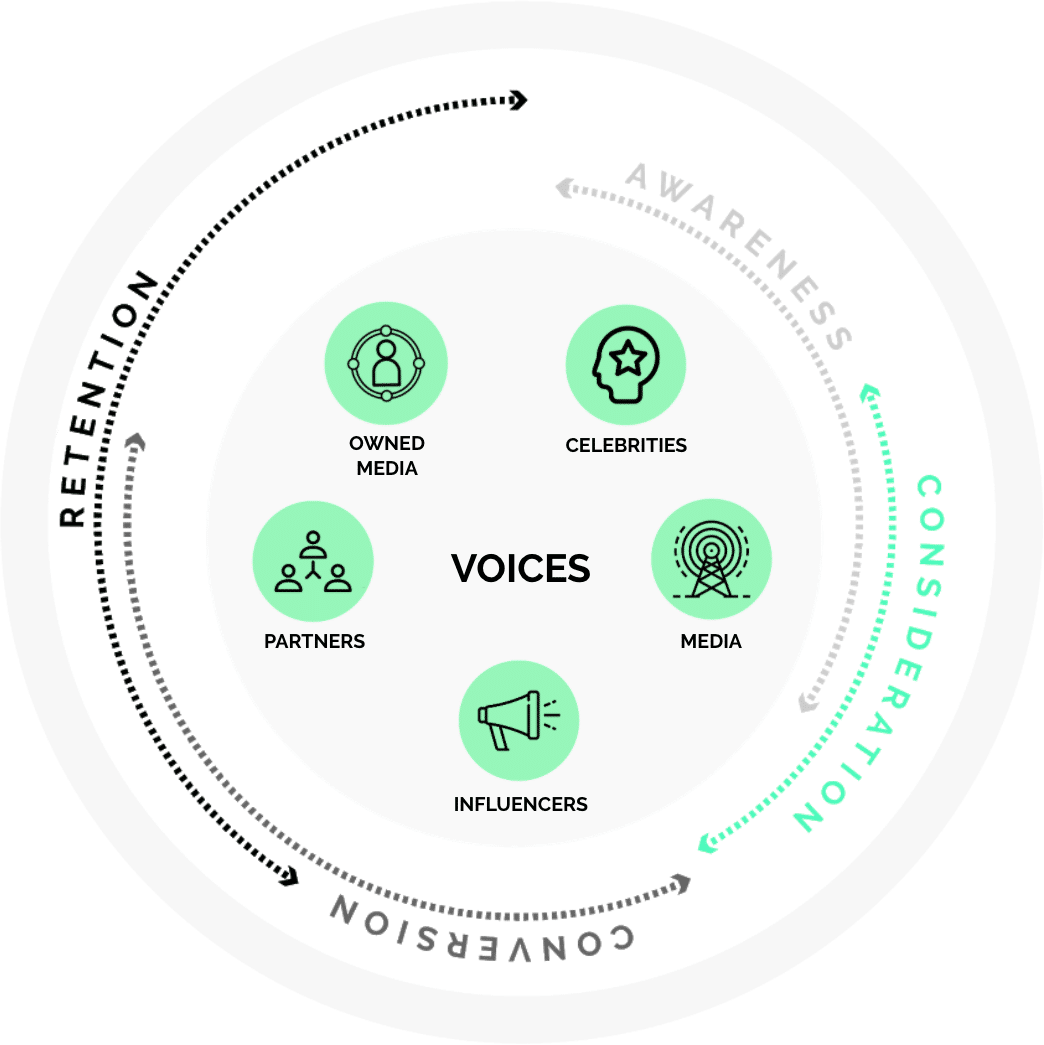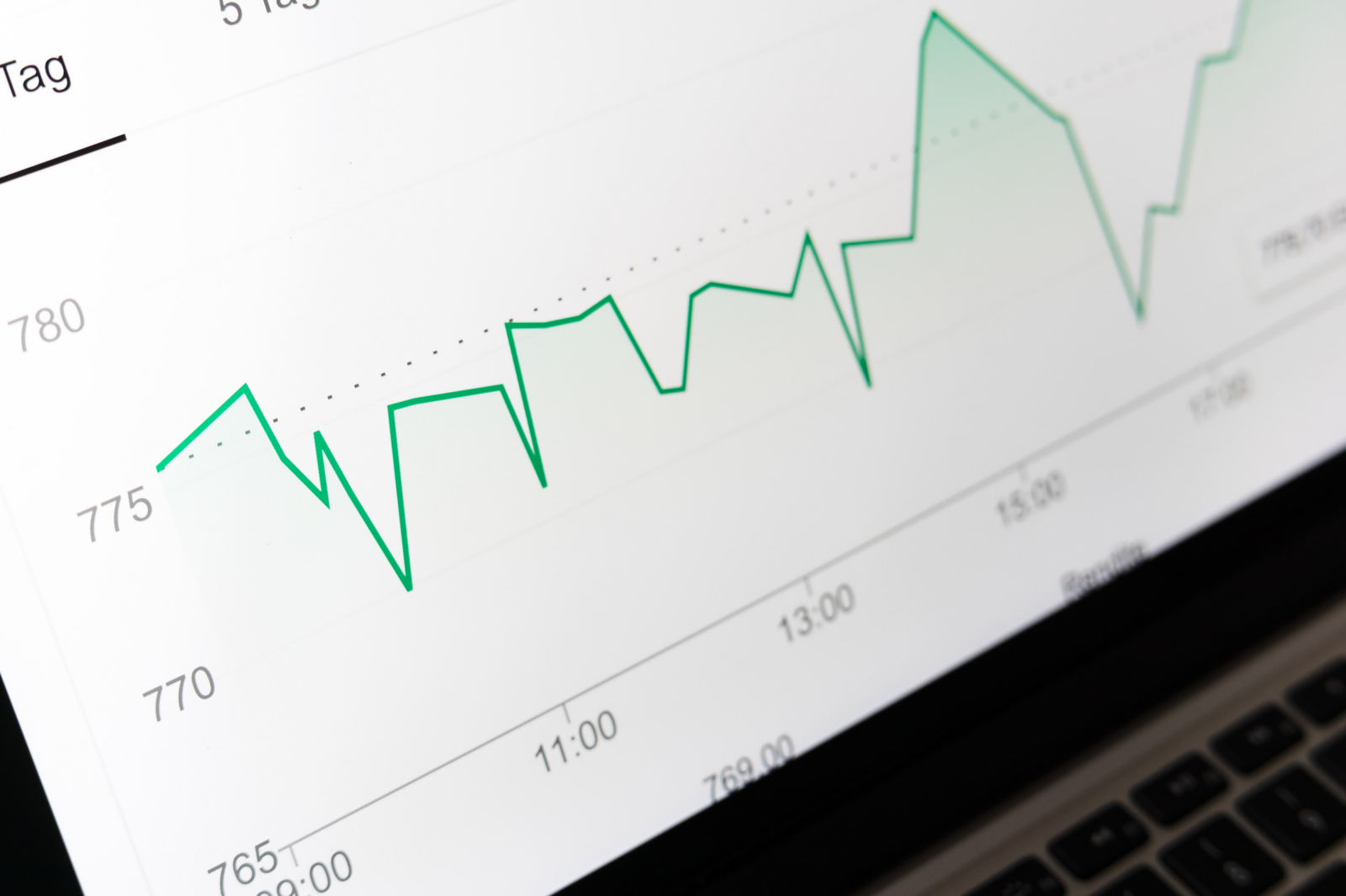Today, brand perception is fast becoming one of the (if not the) most essential purchase-drivers for consumers. With companies in fashion, luxury, and beauty continually being put to the test thanks to Covid, ongoing global political issues, and the growing share of wallet of younger consumers, people are hyper-aware of what brands truly value, and how they communicate this. In fact, the brand itself can represent almost half of a company’s overall value – for example, $1.4 billion of Kate Spade’s acquisition cost to Tapestry was attributed to ‘brand value’ (representing around 50% of the total sale).
However, the question arises as to what really builds this brand value, and how can you determine which marketing activities are more valuable than others? Is value being built by Media mentions and how your brand is perceived by authoritative publications? Is value being built by influencer and celebrity activations or how they speak about your company? Or, is the value being built by how you market your brand on your website or owned social media channels? The answer to these questions is all of the above. And, with both industries and brands being totally unique in how they see success, there is a necessity to be able to quantify and compare marketing activities against each other, to calculate, benchmark, and determine the right strategy for you.
So, your brand performance is what should really drive your strategic decision making based on data-driven insights.
In this article you’ll learn…
How can you measure brand performance?
We have established how important brand performance is, but how do we actually quantify, or calculate it? There are a number of KPIs to consider, which we will explore below, but first, you need to understand some key concepts.
When measuring brand performance, we examine it from a cross-Voice approach. You want to consider each and every marketing initiative your brand runs in order to see what is working, or what areas you might be missing out on. This cross-Voice approach takes into account the 5 key Voices that are influencing customer buying-decisions today:
- Influencers
- Celebrities
- Media
- Owned Media
- Partners

Now that you know what you need to measure, the next step is how to measure it. At Launchmetrics we utilize our propriety metric, Media Impact Value™ (or MIV®) which measures the impact of placements and mentions across these 5 key Voices in the Fashion, Luxury, and Beauty industries. This allows us to compare an influencer activation or campaign with a press mention in order to determine which is offering the most value to a brand.
What are the KPIs of brand performance?
The first thing brands should consider when building their brand performance is the different ways in which they can measure it, as this will allow them to revise and improve their strategies.
Content performance
With most brands opting for omnichannel marketing strategies thanks to the huge increase in consumer touchpoints and the current ‘age of social media’ it’s essential to understand how different content performs. 60% of brand budgets in fashion, luxury, and beauty are being invested into creating, amplifying, and measuring content, and with large monetary flows, teams need to be able to justify the cost of this content production and amplification. Some beauty brands for example build almost all of their brand performance based on social or user-generated content (UGC).
Take Glossier for example, who has built an empire thanks to their UGC strategy. The brand invested heavily in their social marketing activities, how they personally communicated with and rewarded consumers as well as how they spoke about themselves and their values. Relying little on retail Partners (you can only buy Glossier through their owned website) or largely followed influencers and celebrities, Glossier’s brand value was built via their Owned Media tactics.
So, it’s great to create all of this content, but how do you know what’s working? Moreover, how do you know if a runway shot performs better than a product shot or if street style drives more for your business over influencer content? The first thing to keep in mind is, “What is the performance behind this content we are producing?”
Creating impactful experiences
To reiterate; consumers are changing – and what they expect and demand from brands is changing too. Today’s customer is all about immediacy, being at the right place and right time, and this KPI helps your brand understand if you are meeting this standard through your brand assets and brand experiences. And through this momentum, we can understand how your brand is performing. Making consumers feel part of an experience, whether digital or physical has become front of mind for brands in fashion, luxury, and beauty today. The experiences that brands craft has to be share-worthy in order to encourage key industry leaders as well as customers to share and talk about these events on and offline. There are a number of ways you can measure how impactful these experiences are, from who mentions you, how your website traffic increases, or what the value of your mentions is.
Competitive benchmarking
Lastly, we need to think about the competitive landscape; “How do you compare to your competitors?” It’s always great to observe whether this month you accumulated more MIV® than last month, but what if ‘relatively’ you never had a high Media Impact Value™, compared to the industry standards? Moreover, wouldn’t it be interesting to know that while, yes, your MIV® might not have increased, the industry’s average for your competitors has decreased in the meantime? All of these questions, when supported by data, can reveal a lot about how you should adjust your strategy along the way in order to optimize your brand performance and in turn, support your business.
Measuring and improving your brand performance not only improves the overall strategy but builds brand equity. In a growing and increasingly competitive landscape in order to stand out, you need the right insights and industry understanding to gain the upper hand on your competitors. To understand more about how to build brand performance, and what tools you can use to do so, explore more about our Brand Performance Cloud below.

